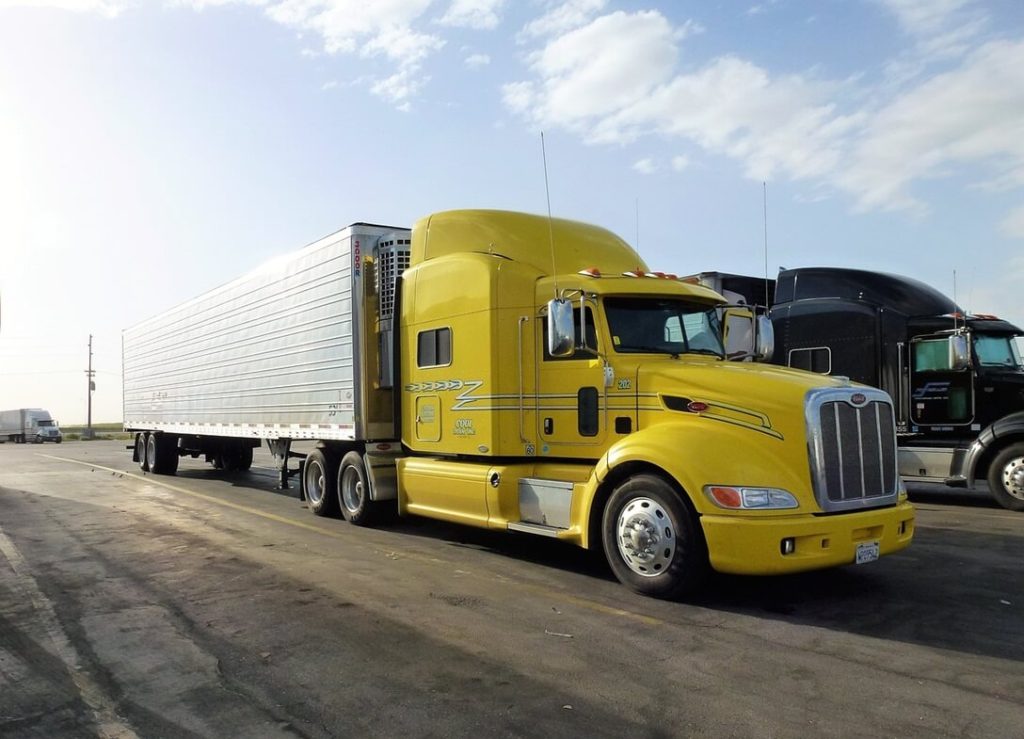
Securing a parking spot at a truck stop is challenging for any driver, but it can be particularly stressful for those operating reefers. Despite their crucial role in transporting perishable goods, these drivers encounter unique issues that can be overlooked.
In this blog post, we’ll share 6 practical tips every reefer driver should know to make their parking experience easier and more worry-free.
1. Reserve a Parking Spot in Advance
It’s no secret that there is a shortage of truck parking lots, so the first thing any driver should do is secure a place beforehand. How can you do that? By finding the best and nearest truck parking spot in Truck Parking Club. Our platform is free to use and has already helped multiple truck drivers find a cozy lot, day or night.
Once you’ve reserved your spot, what’s next? Older reefers used to operate loud and noisy, forcing truck drivers to the back of the lot. But that’s a thing of the past!
Modern reefers, on the other hand, are built to keep temperatures stable for extended periods, eliminating the need for you to park far away and disrupt others with noise.
Hence, if you have a spot and drive a modern reefer – chances are you have nothing to worry about.
2. Shut Off the Reefer When Idle and Empty
When parked at a truck parking lot along with other truck drivers, you may face the problem of having your reefer working. What you can do to avoid disturbing others is to switch off the engine when it’s empty.
In winter, managing your reefer can be simpler. If it comes with insulation, you can turn it off in cold weather when empty. High-quality insulation can maintain the desired temperature for hours, ensuring your reefer maintains the desired temperature when it arrives at the destination.
Always consult with your company for guidance on handling specific loads.
3. Avoid Parking in Direct Sunlight
Reefers are designed to handle various weather conditions, but it’s best not to push their limits. When parking, try to avoid spots in direct sunlight. If that’s not possible, remember that prolonged exposure to the sun can affect the insulation’s ability to keep temperatures cool. This can be especially critical when transporting perishable goods that require consistently low temperatures.
If you can’t find a shaded spot, consider using sunshades or reflective covers to reduce the amount of heat absorbed by the truck. Leaving the truck parked in sunny conditions for too long is not ideal; monitoring the temperature is crucial.
4. Follow Your Checklist
When parked or before hitting the road, it’s helpful to have a checklist that guides you through the things you need to check to make sure your reefer works properly. This routine helps you catch potential issues early, maintaining the efficiency of your unit and the safety of your cargo.
Your checklist doesn’t have to be extensive; it should include only the essential steps:
- Ensure that the temperature remains stable and within the acceptable range throughout your trip.
- Inspect the airflow settings to ensure they are optimal for maintaining the desired temperature.
- Perform a visual inspection of the insulation for any visible signs of wear, tear, or damage.
- Check for any unusual noises or vibrations coming from the unit that might indicate a mechanical issue.
5. Avoid Blocking Airflow
The last but not least tip is to ensure optimal ventilation for your unit in order to maintain the desired temperature inside it at all times.
If you keep your reefer operational throughout your stay, make sure that there is proper airflow. To do that, simply park in a place where other vehicles or objects won’t block the exhaust vents and ventilation grills.
6. Park on Level Ground
Parking on a level ground can be as important as parking in a shaded area. When transporting valuable cargo, you want to ensure it arrives intact. Parking on an uneven surface can cause your goods to shift, leading to potential damage.
Most parking lots at Truck Parking Club will have slots suitable for your reefer, but it won’t hurt to call to double-check the information with the lot owner.
Wrapping Up
Parking your reefer doesn’t have to be a hassle if you follow our 6 practical tips. In addition to good planning, it’s no less important to know how to park your unit to maintain cool temperatures inside and also avoid disturbing your fellow drivers.
Before you hit the road, become a member of Truck Parking Club for free and use our intuitive platform to find convenient parking spots at any time of day.
The information published herein is for general informational purposes only. Truck Parking Club does not make any representations or warranties about the completeness, reliability, legality, and accuracy of this information. Any reliance placed on such material is strictly at the user’s own risk. Truck Parking Club shall not be responsible for any losses or damages incurred in connection with the information published herein.





